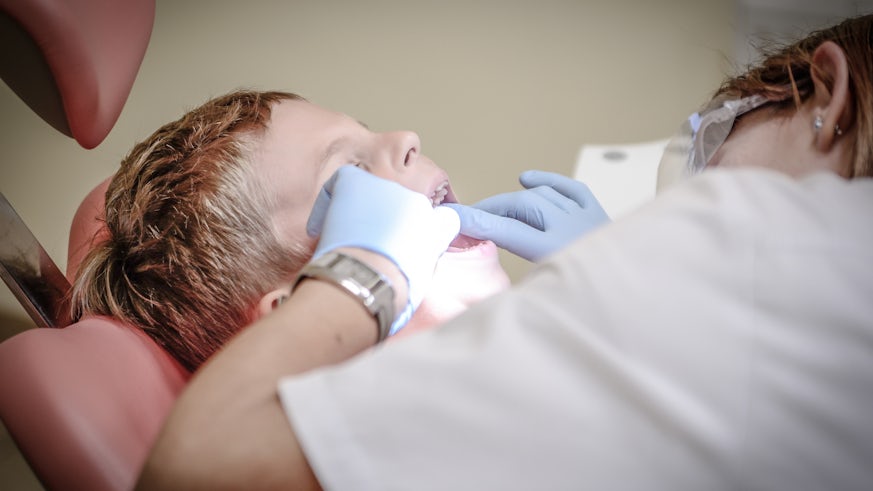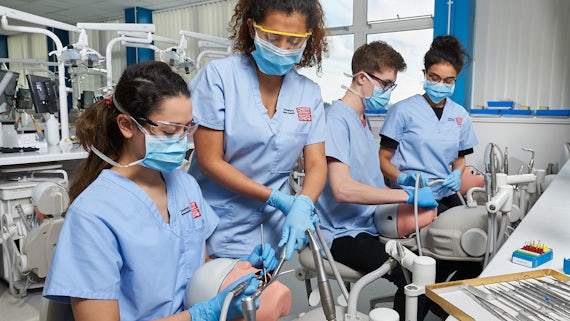Preventing tooth decay in children
13 April 2017

Applying fluoride varnish to children’s teeth is just as effective at preventing tooth decay as the alternative method of sealing teeth and could save the NHS money, concludes a study led by Cardiff University.
The ‘Seal or Varnish?’ study, in collaboration with Cardiff and Vale University Health Board Community Dental Service, treated just over 800 children with either fissure sealants or fluoride varnish to discover which treatment is most effective and offers the best value for money for children aged 6-7 years.

Fissure sealants are plastic coatings applied to teeth to stop food and bacteria from becoming stuck and last for several years. Alternatively, fluoride varnish can be applied to teeth twice a year to give added protection.
In children who had the fluoride varnish treatment, 17.5 percent had decay in their molars that was bad enough to need a filling or for the tooth to be taken out after three years. In the sealant treated group, 19.6 percent of children had decay in their first molars. Over the three years there was a cost saving of £68.13 per child in the varnish group.
Professor Ivor Chestnutt, from Cardiff University’s School of Dentistry, who led the study, said: “Our research has shown that the fluoride varnish does prevent tooth decay just as well as a more difficult and expensive treatment. Fluoride varnish is simple to apply and requires less complex intervention than that required for placing plastic sealants...”

“This study provides invaluable evidence for National Health Service dental services in the UK and has implications for dental prevention around the world.”
Dental caries (tooth decay) is amongst the most common diseases to affect humankind. 35% of the global population, 2.4b people have untreated caries in their permanent teeth. The first adult molars which erupt at age 6 are particularly vulnerable to decay. Tooth decay is caused by a build-up of plaque, a film of bacteria that attacks the teeth. Diet is a major factor in the growth of plaque with sugary foods and drinks being the main contributors. Rates of decay are often higher in children who live in disadvantaged communities.
Dinah Channing, Community Dental Service manager at Cardiff and Vale University Health Board said, “The results of this trial provides important evidence as to how we tackle the still unacceptable levels of tooth decay in disadvantaged children.”
The study was coordinated by the Centre for Trials Research at Cardiff University and funded by the National Institute for Health Research (NIHR). It is published in the Journal of Dental Research.


